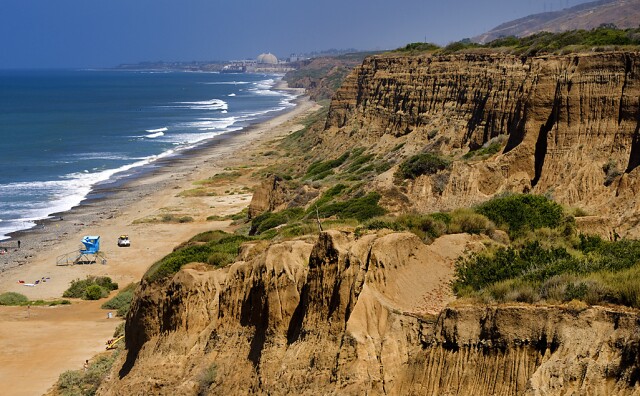Once Again, Fireworks Made Bad Air Quality Explode In LA. Here's How They Affect Our Health

On the morning of July 5th, many Angelenos woke up to a smoky haze. That’s one side effect of Fourth of July fireworks — and it can be dangerous for your health.
By late Monday, smoke from both planned and unplanned fireworks displays had made air quality dangerously bad across most of the Southland, according to the South Coast Air Quality Management District (AQMD).
As of midday, coastal areas largely cleared up. Smoky air remained bad throughout much of the San Fernando and San Gabriel Valleys, and the Inland Empire, according to the agency, which is responsible for improving air quality in large portions of Los Angeles, Orange, Riverside and San Bernardino counties.
#AirQuality Forecast (Tuesday, July 5th): https://t.co/szsyGAFunD
— South Coast AQMD (@SouthCoastAQMD) July 5, 2022
🏖 Coastal: Moderate
🏙 LA: Moderate -to- Unhealthy
🌅 OC: Moderate -to- Unhealthy for Sensitive Groups
🌄 Inland Empire: Good -to- Unhealthy
🌴 Coachella Valley: Moderate pic.twitter.com/YxxRqbBMnK
And it was all predictable. Scott Epstein, supervisor of AQMD’s Air Quality Assessment Program, said every July 5th, we have some of the worst air quality that we see all year.
“Everybody should take some precautions during periods of unhealthy air, but sensitive individuals such as the elderly or children or people that have pre-existing heart and lung issues really need to be extra careful,” he said.
-
Introducing a new series: LAist City Treks
-
Why you won't find the best sunscreens here
-
New video shows alleged assault
So far this year’s fireworks pollution doesn’t look quite as bad as last year, Epstein said, but the agency will need to wait 24 hours to confirm the data. In 2020, fireworks created a record amount of pollution for Independence Day celebrations, he said.
Epstein said fireworks emit particulate matter 2.5, an extremely fine particle that gets deep into the lungs and can cause coughing and breathing difficulty, aggravate asthma or even trigger heart attacks.

Children, older people and people with heart and lung issues are particularly at risk and long-term exposure to the stuff has even been linked to premature death, he said.
You can protect yourself by leaving doors and windows closed at home, limiting outdoor activity for kids and sensitive individuals as much as possible, running an air purifier if you have one, and wearing that N95 mask when you do go outside.
You can monitor your local air quality at aqmd.gov or download the AQMD phone app.
-
Sandhill cranes are returning to the Lake Tahoe basin after a century long hiatus in what many say is a conservation success story.
-
Jackie’s partner, Shadow, refuses to abandon their unviable eggs, despite her attempts to nudge him along.
-
We do have some of the same types of buildings here.
-
Switching to an electric heat pump water heater can save you money and help the state avoid power outages.
-
The state's parks department is working with stakeholders, including the military, to rebuild the San Onofre road, but no timeline has been given.
-
Built in 1951, the glass-walled chapel is one of L.A.’s few national historic landmarks. This isn’t the first time it has been damaged by landslides.









